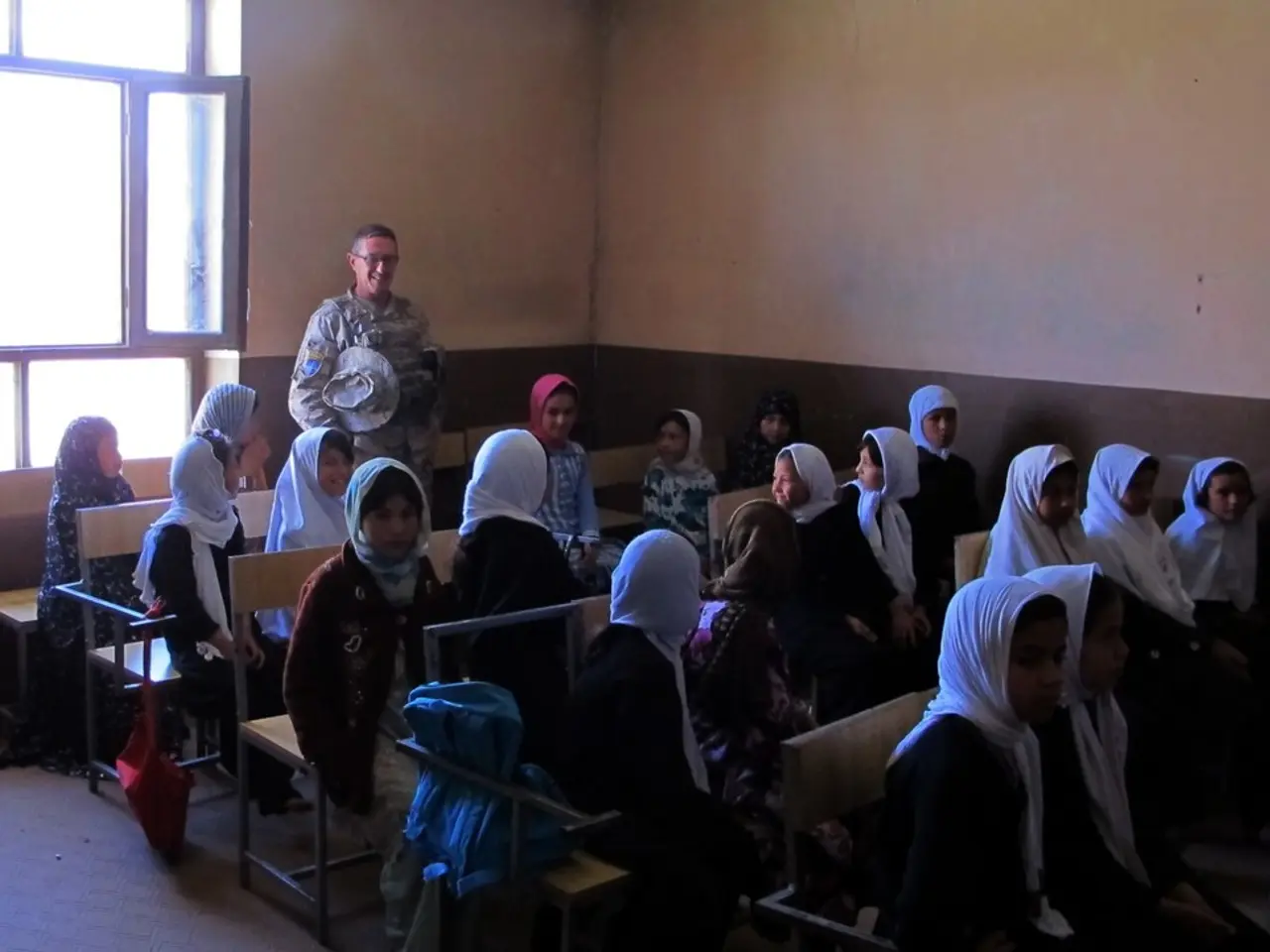Post-Pandemic Participation at Hellgate Event
Hellgate High School, facing a decrease in attendance since students returned from online learning during the pandemic, is set to implement changes aimed at addressing this issue. The school's solution, to be implemented next year, will focus on engagement, relationships, health support, and community partnerships.
Counselor Tri Pham, one of the driving forces behind these changes, believes that education has lost focus on the value of being in school, in person, with teachers and classmates. Pham, along with Counselor Morgan Troutt, has identified a direct correlation between a student's attendance and their grades. On average, students with poor attendance tend to have lower grades, including D's and F's.
Pham emphasizes the importance of "soft skills," such as showing up, being on time, being prepared, and being engaged, which he suggests are just as valuable as submitting assignments online. These skills, often overlooked during the shift to remote learning, are crucial for students' success both in school and in their future careers.
However, some students have found success in attending class less frequently and still earning high grades. This perception that in-person classes are optional has been a challenge for the school. To combat this, Pham intends to shift the emphasis back to attending class and being in school.
Cellier, a concerned parent, suggests a lack of accountability from teachers in enforcing repercussions for unexcused absences. Cellier believes that teachers should follow through with detentions if students skip class to ensure that students understand the importance of regular attendance.
To motivate students and convey the value of attendance, the school plans to implement reward systems such as homework passes, extra free time, "leader for the day" privileges, or positive phone calls home. Building relationships and engagement between educators and students, through training and predictable classroom routines, is also a key strategy.
Addressing physical and mental health barriers to attendance, through school-based health services and promoting healthy habits, will also be a priority. Creating a sense of belonging and social connection among students through peer connection programs and social-emotional learning initiatives will further support attendance.
Collaborating with community organizations and conducting respectful home visits will create a network that supports student attendance and engagement. Offering engaging after-school activities and hands-on Career Technical Education (CTE) opportunities will also increase students’ perceived necessity and interest in attending school in person.
The school will use data-driven, tiered interventions tailored to individual student needs and monitor attendance alongside academic and behavioral data to ensure the effectiveness of these strategies. Promoting a culture of regular attendance through advocacy at multiple levels and incorporating chronic absenteeism into school accountability systems will help sustain improvements.
Both Pham and Troutt are planning changes to address the attendance issue at Hellgate High School. The student body is apprehensive about the upcoming changes, but Pham acknowledges that the problem is complicated and may not have an easy solution. However, he emphasizes that the importance of "soft skills" and the value of being in school cannot be overlooked. If teachers want students to come to school, they need to proactively address the issue.




